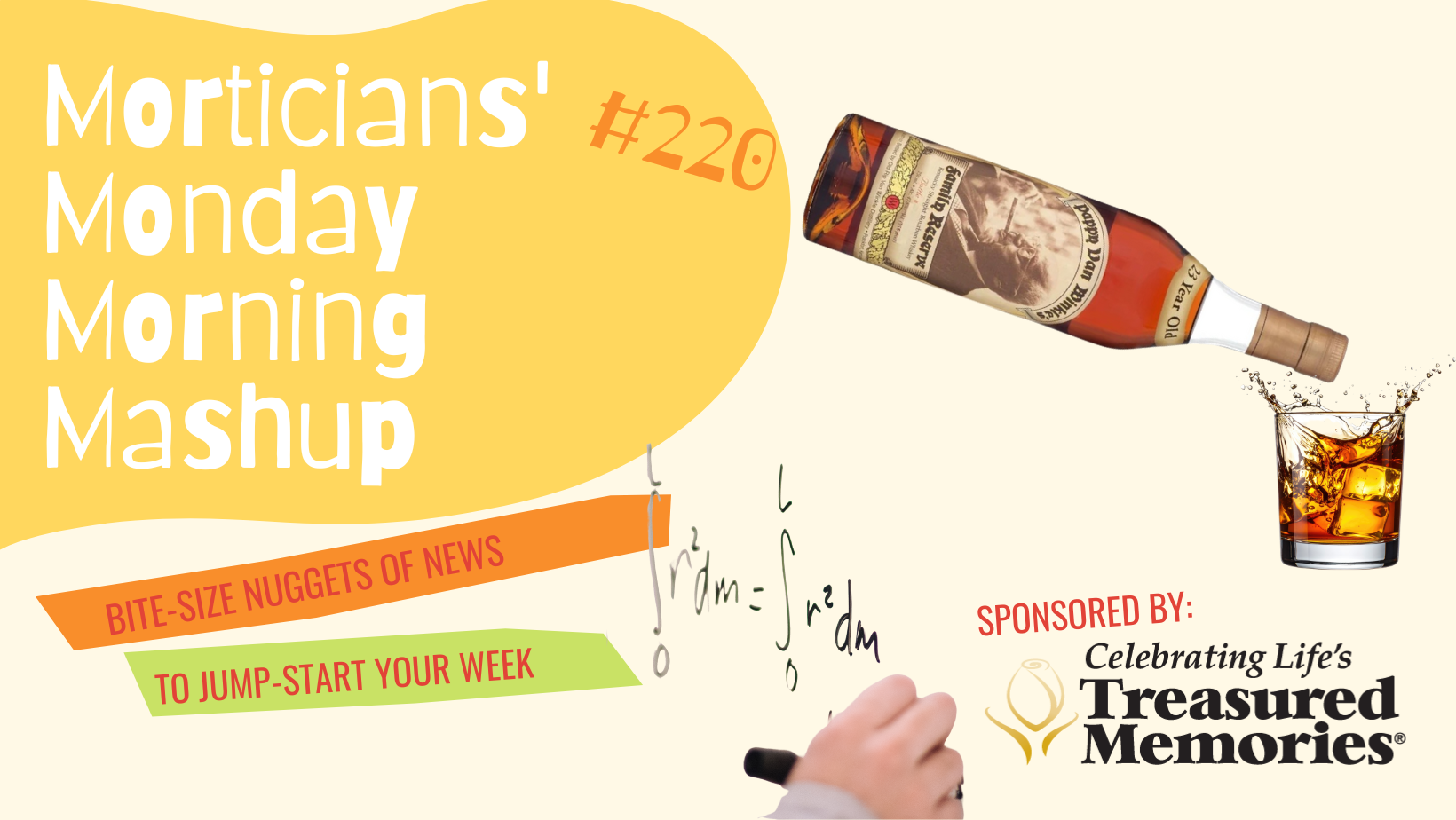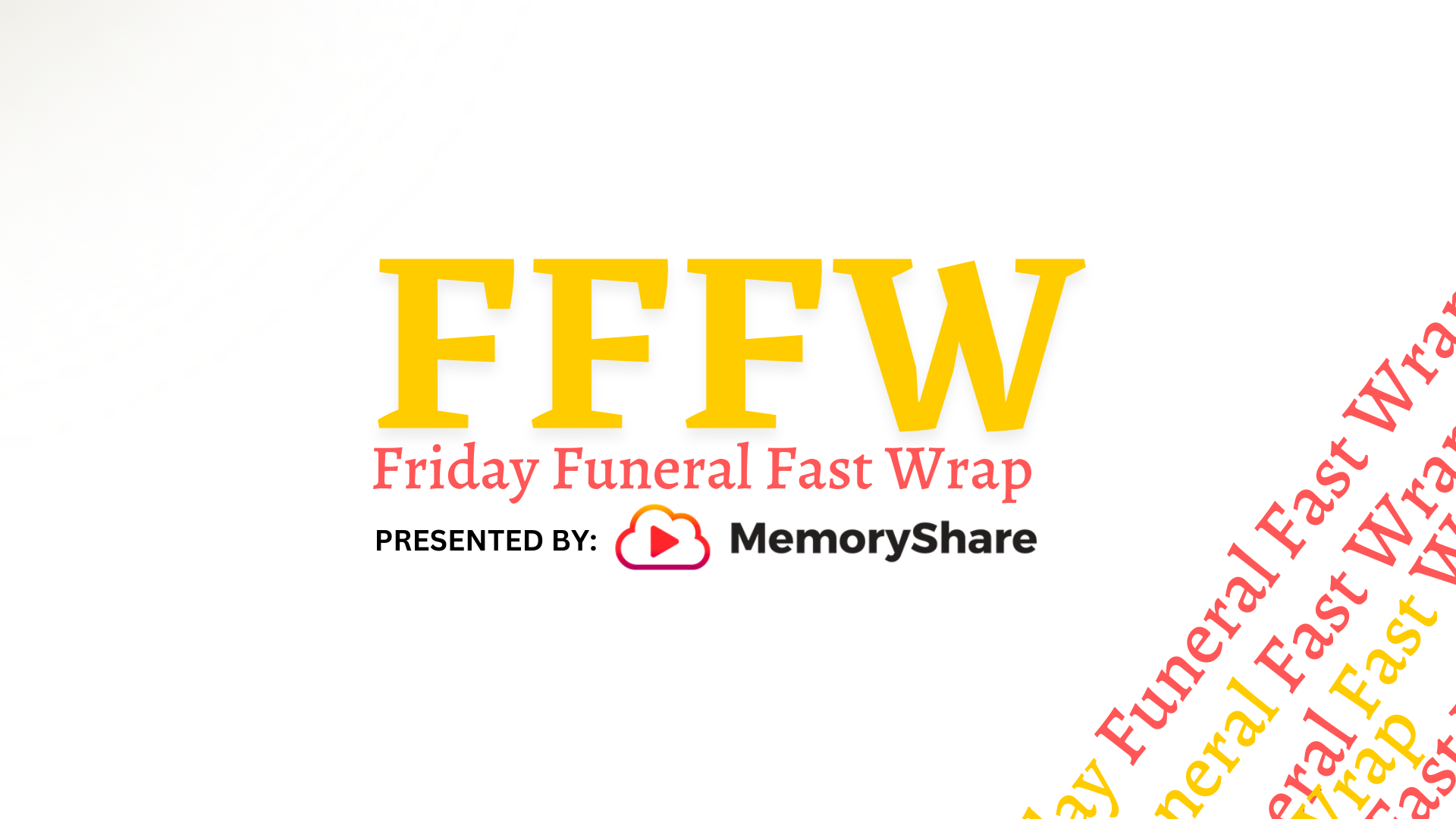Response to A Horse is a Horse, Of Course, Of Course
My article was in response to another writer’s comment that the media tends to report wonderful meaningful services for heroes but that the attention which is given to the funeral industry tends to focus on what goes wrong rather than what goes right. Furthermore, people tend to remember what goes wrong in general and that applies directly to the funeral industry. One pre-need scam leads individuals who might be considering pre-need arrangements to be doubtful about the safety of their money. One rogue Crematorium operator and we find ourselves answering questions about the assurances of our providers and then distributing pamphlets to ease consumer distress. Some funeral directors receive kickbacks from their company for everything they sell from caskets to packaged funerals and on to cemetery stones, but that doesn’t mean everyone gets a kickback. When information such as this is played up by the media, it damages all of us. The public’s memory is long and unforgiving. As a result, the funeral industry has been put in the position of constantly apologizing for itself and its membership.
The question is how to draw good publicity for a profession which can hold its head up high with pride in knowing that they are serving the public with compasion and insight, performing tasks which most individuals are loathe to perform for their dead. Getting good press is always difficult. I do not expect the press to write about every good deed or random act of kindness performed by funeral directors and others associated with the industry. What I do expect is honest reporting. Of course it is not only the funeral industry which is affected by the media’s bias or distortion of the facts. Not so long ago, the press damned Israel for attacking an ambulance and killing its occupants. Turns out that the ambulance was staged and the occupant was already dead and had been placed in a rusting out ambulance left at the side of the road. The picture was seen around the world and Israel damned. The apology that followed by Reuters was of some very small consequence. Funeral professionals are often blamed at large for something which went wrong somewhere. There is a huge fear factor involved – fear of the unknown, fear of the dead, fear of a profession that is not the choice of most individuals. It is easier to damn than to praise.
I began my article by saying that a funeral home which I had nominated for an award of merit lost to a funeral home that staged a memorial for a police horse. Where we place our emphasis in the industry for service and to whom we give merit needs to be re-evaluated when a funeral home team which exemplifies the very best qualities of the industry loses to a one time memorial service for a horse. Something just isnt right in that scenario. I then went on to talk about the media and the historical relationship of the funeral industry with the media, in literature, movies…
We need to look at our history and begin to understand the social, political and cultural forces which are at play and constantly impact upon the funeral industry which includes funeral directors and cemetery and crematorium managers and their staff. We need to be aware of what has been written, said and how the industry is portrayed if there is any chance of changing our image in the public forum. Our history is what brought us to our present and will take us into the future. Only a short sighted individual believes that we can focus on today and forget about yesterday. Jessica Mitford is here to stay, she planted the seeds in 1963, watered them again in 1998 and the plant has taken hold. Coincidently, people began to want something different in the style of their funeral, they wanted something different in the rituals of funerals and change came. We should be grateful to historians like Laderman who have given us a social cultural history of the funeral industry in America because he has done the leg work for us to see the high and low points. This allows us to identify quite easily what was said and done and the outcomes. No such history is available in Canada. A new book on the funeral industry in Ontario is currently being published but it will not have the depth concerning many of the issues which Laderman identifies. The past is our teacher and we need to learn from that to move forward.
The world is changing rapidly but what people want and expect from their funeral professional remains fairly constant -compassion, insight and good service at a reasonable cost. They want new rituals and that often means more family involvement in respect to the actual funeral. Funeral ritual is the domain of the clergy, chaplain and celebrant. The funeral director’s role is to facilitate the relationship between the clergy and bereaved and to facilitate the more technical aspects including body preparation, cremation and the funeral.
The newspapers do not rely upon the funeral industry to support them by providing obituaries. I discovered during my research that there are a number of newspapers which provide a specific number (5) of lines for a minimal cost to the family as a service to the family. The payback is that people might take a subscription to the paper that treated them decently during their time of loss. Other papers charge a modified rate per line. Certainly the newspaper is not getting rich by printing obituaries in comparison to a full page ad by another company.
Finally, we have barely got a foot into the door of the 21st century. That means that what is going on now does not even qualify as history , technically it is current events. We can begin to predict what the future will hold for the industry only if we are astute at looking at our past, learning from our mistakes and then attempting to address the emotional, social and cultural needs of the bereaved who turn to funeral professionals when a death occurs. With insight we can bring about change before we are lead to it by necessity or forced to make change by the lawmakers of the land. It takes insight and it means that we be more critical of our own performance. Change must be initiated on the inside and be demonstrated to the outside. Whisteblowers are just that, blowing in the air hoping that someone will hear them. If you want to make change, start small with every family you work with and grow larger by becoming involved in local funeral directors associations, state and provincial associations, help by teaching and examining new candidates as well as working with the clergy who need our support and insight, just as we rely upon theirs. The 21st century will bring many changes. We can be on the cutting edge of those changes and as deathways educators lead the public, not blindly but with knowledge into the brave new future.
Your choice is to be a part of a wonderful profession or to stand apart and cast stones. Let the man who is blameless cast the first stone.



